 Are minority issues more likely to be raised by MPs from a religious minority background? Through analysing over 5,000 Early Day Motions, Ekaterina Kolpinskaya looks at whether there is indeed a correlation. She finds that institutional considerations make a politician’s religion largely irrelevant; instead, factors such as their seniority and the composition of their constituency are much more likely to affect their engagement with such issues.
Are minority issues more likely to be raised by MPs from a religious minority background? Through analysing over 5,000 Early Day Motions, Ekaterina Kolpinskaya looks at whether there is indeed a correlation. She finds that institutional considerations make a politician’s religion largely irrelevant; instead, factors such as their seniority and the composition of their constituency are much more likely to affect their engagement with such issues.
A consistent objective of parliament and of individual political parties in recent years has been to improve the representation of minority groups, with the most common method to achieve this being that of increasing the number of MPs from such backgrounds. Yet there is little evidence that this has substantially enhanced the representation of minority issues or interests in the Commons. In fact, my study of Jewish and Muslim parliamentary representation demonstrates that having a religious minority background does not make MPs any more likely to raise issues of concern for their respective minority groups. This is because the constraints of party discipline and parliamentary procedure limit the opportunities MPs have to act on behalf of their backgrounds, and casts considerable doubt on whether boosting the number of minority MPs will, at the same time, improve minority substantive representation.
Yet this does not mean that there are no ways of improving the attention paid to minority groups’ interests. By emphasising the importance of institutional constraints on MPs’ behaviour, this research shows that longer service in the Commons and being a backbencher were both positively associated with the engagement of MPs – of any religious background – with issues of concern for British Jews and Muslims. In addition, the representation of a particular minority in an MP’s constituency would also impact on their engagement with such issues. A high proportion of Muslims in a constituency, for example, encourages MPs from a Jewish or non-minority background to engage with issues of interest to that community.
Such conclusions are based on an analysis of 5,160 Early Day Motions (EDMs) sponsored by all politicians from Jewish (38) and Muslim (11) backgrounds elected to the House of Commons between 1997 and 2012, and a control group of 25 non-minority politicians. EDMs are considered a ‘low-cost’ form of parliamentary activity – compared to voting that occurs under the overwhelming pressure of party discipline – and provide MPs with an opportunity to make political statements on issues of interest to them or their constituents. In theory MPs in ministerial positions – and all Labour MPs – are required to notify the Whips if they wish to sponsor or sign a motion; in practice, unless an EDM is politically contentious, there is less pressure for them to do so. So we might expect that MPs from minority backgrounds use a low-cost tool such as an EDM as a means of promoting the distinctive interests of their communities. But as the graphs below illustrate, MPs from Jewish and Muslim backgrounds are no more or less likely to raise minority issues through EDMs than other MPs. In fact, such engagement is far better predicted by institutional factors, such as being a backbencher, the demographic profile of one’s constituency, or length of service in the Commons.
Figure 1: Religious Background Figure 2: Significant minority presence in constituency
Figure 3: Holding a leadership role Figure 4: Length of parliamentary service
Logistic (Gaussian) regression outputs. The black circles represent the coefficients. The farther the circle is placed from the line through zero, the stronger the effect is. If the circle is on the right side of the line, the effect is positive, and it is negative if the circle is on its left side. If the line for the 95% confidence intervals crosses the line through zero the effect is not statistically significant.
What the graphs show is the average effect on the chances that an MP will raise a ‘minority issue’ through an EDM if they come from a minority religious background (Figure 1), representing a constituency with a substantial presence of a particular minority (Figure 2), holding a leadership role in the House of Commons (Figure 3), and their length of parliamentary service (Figure 4). Evidently, one of the most substantial drives of promoting minority issues is being a backbencher; in other words, not being a minister or holding some other leadership role in the Commons. This is likely to be driven by two factors. First, EDMs are better-suited for expressing MPs’ personal views and are often used for this purpose; yet since EDMs do not have a substantial and immediate effect on legislation, ministers might be discouraged from extending the time and energy to engage with them. Second, ministers are bound by the principle of collective responsibility, meaning that they are not as free as backbenchers to express their wishes, and may choose to make less use of EDMs.
The length of parliamentary service is another important factor, illustrated through Figure 4. More experienced MPs are much more likely to raise issues of concern to British Muslims and Jews, regardless of their legislative role or religious background. The reverse is true for junior MPs, and this could reflect the career aspirations and the fact that they might choose to distance themselves from potentially contentious or niche issues, in favour of pushing the party line and agenda. It is likely to also reflect a degree of confidence: senior MPs have more political experience and can be more confident in their ability to act on personal convictions and interests in a way which will not damage, or incur the anger of, their party.
Overall, the supremacy of institutional over identity-based predictors of MPs’ engagement with minority issues in EDMs demonstrates one thing: that the number of minority MPs in the House of Commons is not, in itself, likely to improve the substantive representation of minority issues that are outside a party’s agenda. Rather, minority issues are a matter of common debate, involving politicians from all backgrounds in their own capacity, and influenced by institutional factors such as their role in the Commons and specific traits, including an MP’s length of service.
So boosting the substantive representation of minority interests in Parliament would require challenges to the highly constrained working environment in which MPs find themselves, which makes it nearly impossible for them to pursue minority issues alongside their other obligations, even through low-cost parliamentary means like EDMs.
____
Note: the above draws on the author’s published research in the Journal of Legislative Studies.
 Ekaterina Kolpinskaya is an Associate Lecturer (E&S) in Quantitative Methods at the University of Exeter, and an Associate Research Fellow working on the ESRC-funded project ‘Media in Context and the 2015 General Election: How Traditional and Social Media Shape Elections and Governing’. Her research on religious representation in Britain includes work published in Parliamentary Affairs and a chapter on the legislative roles of Muslim MPs. She tweets @DrKolpinskaya
Ekaterina Kolpinskaya is an Associate Lecturer (E&S) in Quantitative Methods at the University of Exeter, and an Associate Research Fellow working on the ESRC-funded project ‘Media in Context and the 2015 General Election: How Traditional and Social Media Shape Elections and Governing’. Her research on religious representation in Britain includes work published in Parliamentary Affairs and a chapter on the legislative roles of Muslim MPs. She tweets @DrKolpinskaya


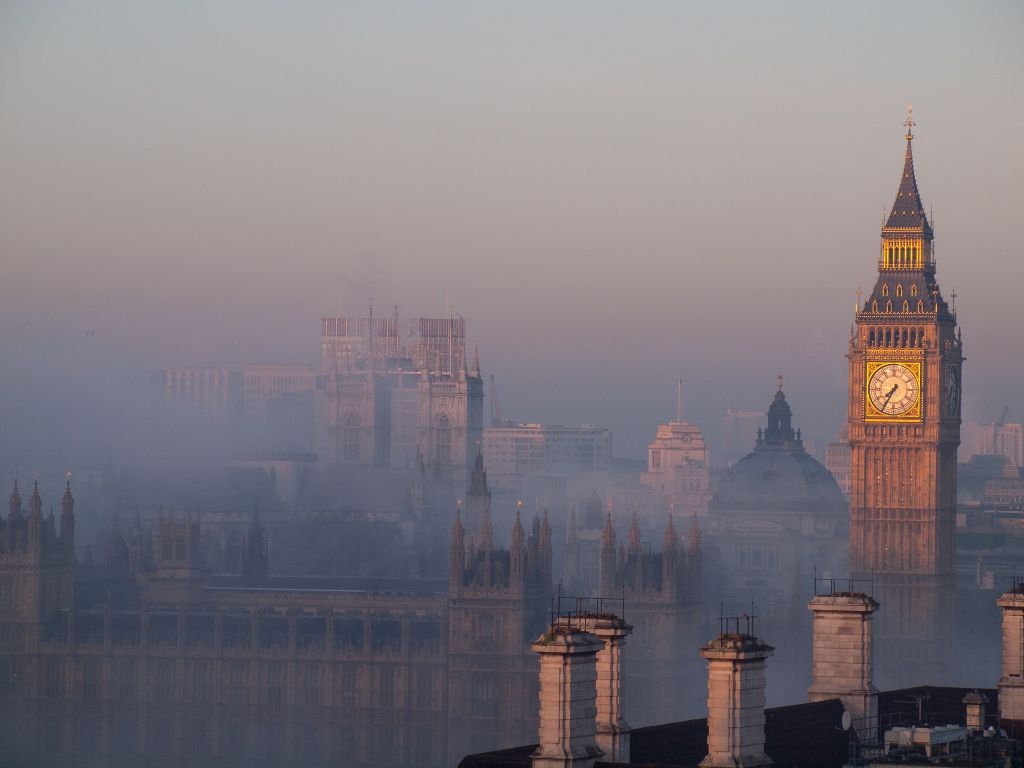
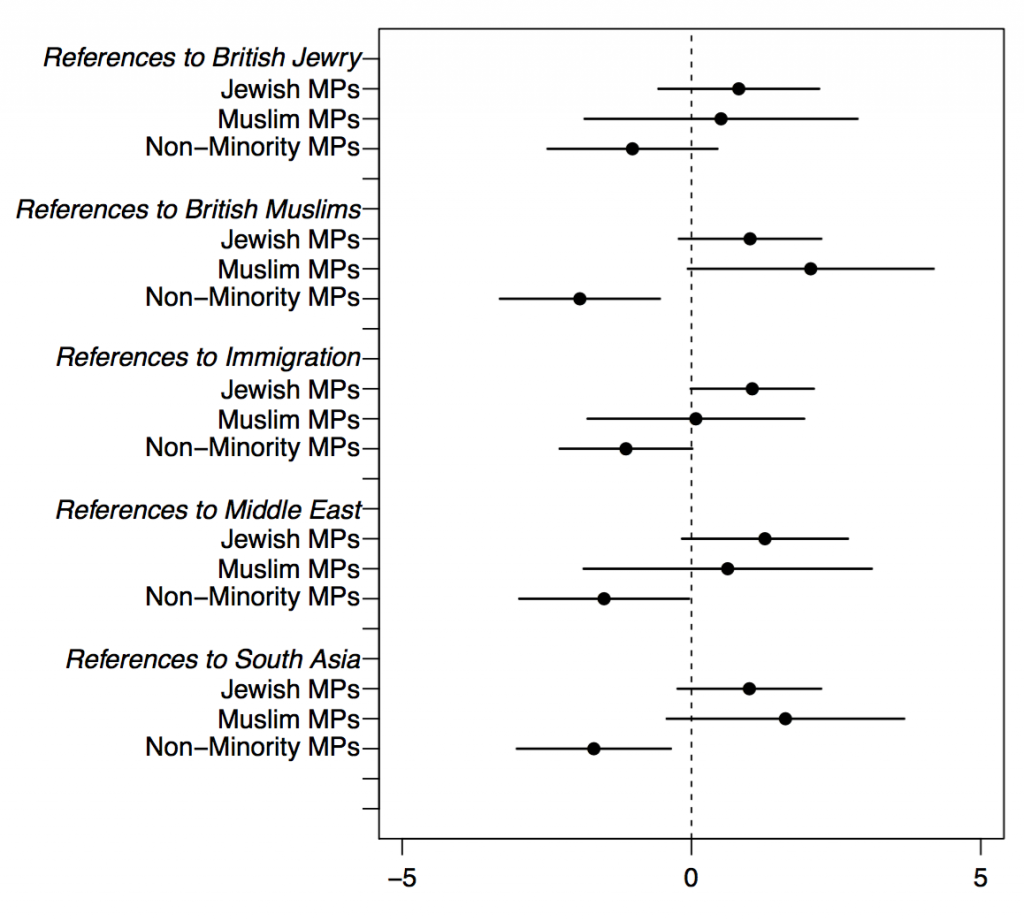
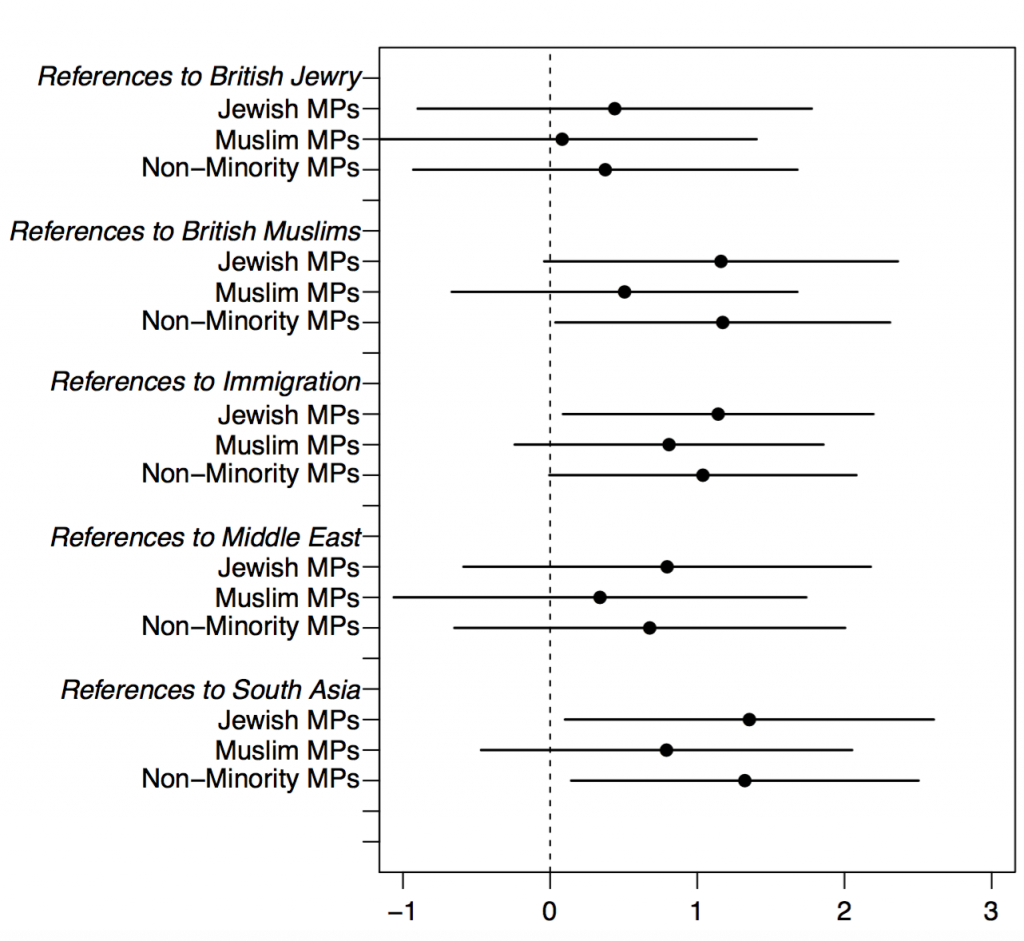
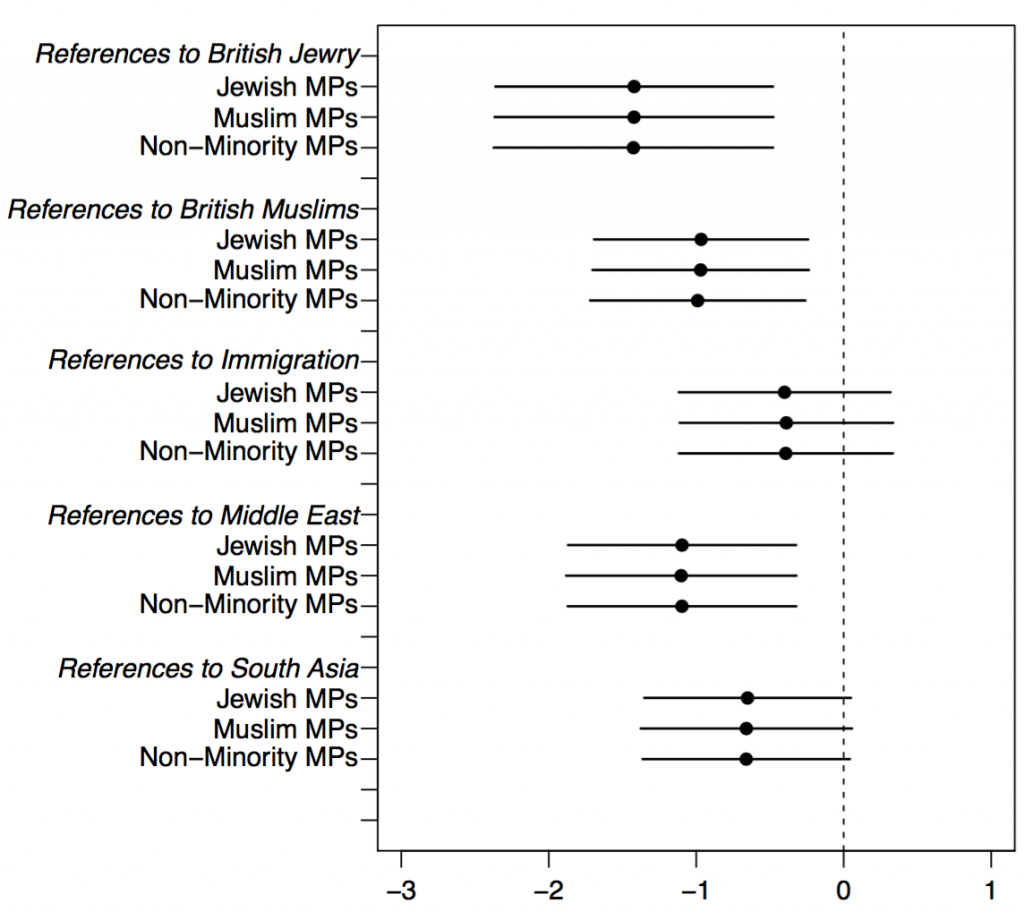
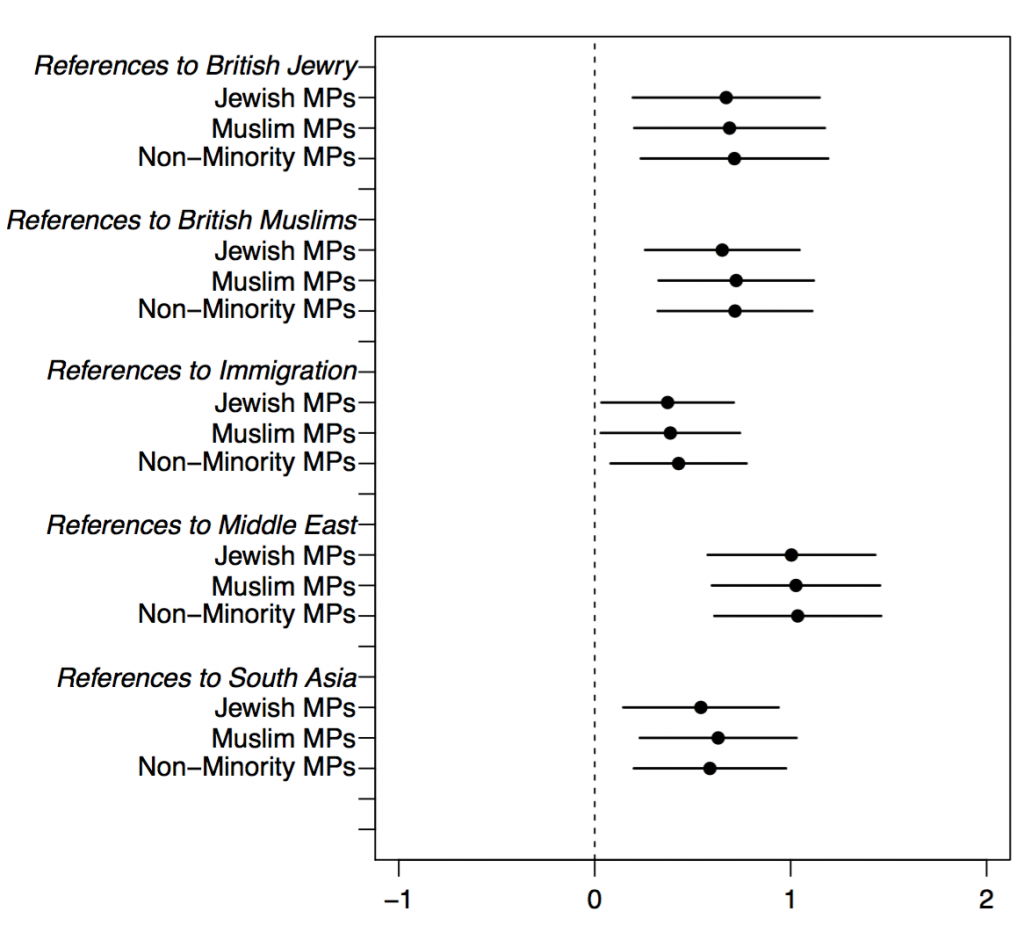






The very fact that this question had to be addressed proves that it is relevant. We saw how new immigrants workers were treated in the 60s-70s, when their grievances were ignored by MPs. Language, culture and religion play a big role part. 250000 jewish population in the UK, how many MPs represent them?
Iain Duncan Smith is a Catholic.
Unfortunately, did not look at Christians in this research. I was more curious about the impact of non-Christian religious backgrounds for this study, but will most likely expand it in the future. Identifying Catholics will require some time though.